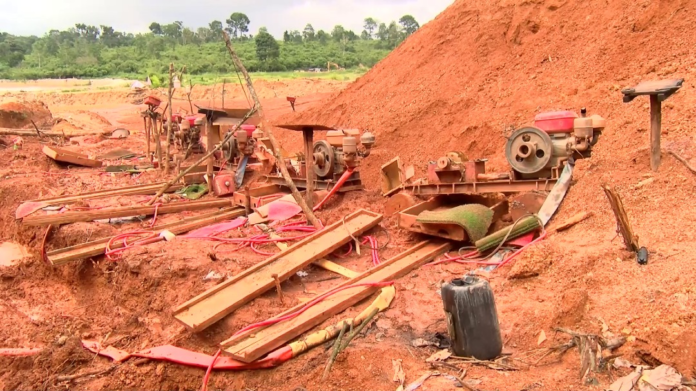A Co-Principal Investigator of the University of York and member of the University of Ghana ‘Galamsey’ Research Team, Prof Gladys Nyarko Ansah has highlighted the urgent need for more comprehensive education on the detrimental effects of illegal mining, known locally as ‘galamsey.’
According to her, the general public, and particularly the communities involved in the activity have not been sufficiently informed about how immediate and long-term impact of galamsey on health.
“Galamsey has become ingrained in the mindset of many, not only among those who engage in the mining but also among those who finance these operations. We must address this mindset and work towards changing it,” Prof Ansah stated.
Speaking on Joy FM’s Super Morning Show, she emphasized that altering this mindset requires a multi-faceted approach. “There are several ways we can bring about this change. People need to see and hear the consequences of galamsey in a way that resonates with them,” she explained.
Prof Ansah expressed concern that many people, especially those in urban areas like Accra, underestimate the far-reaching effects of galamsey. “Even in Accra, we are not insulated from the dangers of galamsey. The food we consume—tomatoes, plantains, and kontomire—can contain harmful levels of heavy metals due to contaminated soil and water.
“This issue is far more severe than we’ve acknowledged, and it is crucial that we communicate these findings to everyone.”
She urged the public to consider the potential health risks associated with their daily food intake. “When you have a bowl of rice, ask yourself: How much heavy metal am I consuming in this meal? The pepper, tomatoes, onions, and fish—when combined, what is the total amount of heavy metals in that bowl, and what impact could it have on my health?”.
Prof Ansah also raised alarm about the possible long-term effects of heavy metal exposure.
“I’ve noticed a troubling trend of girls beginning menstruation before age 10 and women entering menopause in their early 40s.
“Scientists suggest that these could be indirect effects of heavy metal consumption. Additionally, we must question why there’s such a heavy promotion of aphrodisiacs among a supposedly youthful and healthy population. If these products are necessary, could it be because heavy metal exposure is affecting men’s reproductive health, leading to increased infertility rates?”.
Prof Ansah called on illegal miners to understand the extensive harm their activities cause to the country. “It’s vital that we communicate these realities to the miners in ways they can understand. Many of them are working in remote areas, far from the conversations we’re having. We need to collaborate with district assemblies and local communities to reach them effectively.
“In many villages, traditional methods of communication, like drum-beating, have been replaced by information centres. What if, every morning and evening, these centres broadcast messages about how galamsey can lead to infertility, impotence, and birth defects? The impact could be profound.”
In closing, Prof Ansah emphasised the critical need for nationwide awareness and education to address the galamsey crisis, urging collective action to safeguard public health and the environment.
Source: Myjoyonline.com
ALSO READ:


